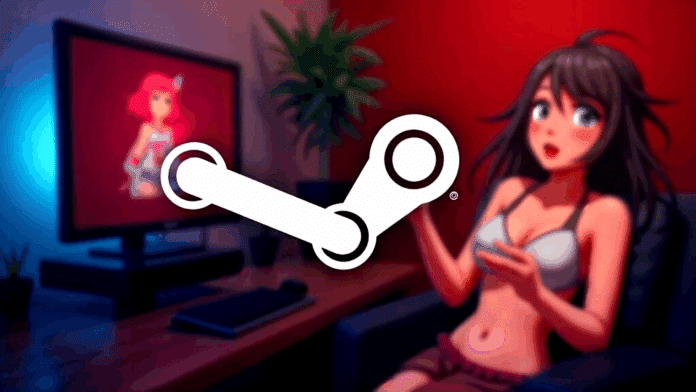Steam is removing numerous adult games because credit card companies are putting increasing pressure on Valve – and this is sparking heated debates about censorship and the power of payment service providers.
Adult games
can’t be purchased on Steam in Germany anyway, that’s well known. But recently, a number of adult games have also been removed internationally – and it’s not Valve itself that has wielded the ban hammer, but the big players behind the scenes: Visa, Mastercard, and other payment service providers.
Anyone who thinks this is just a fringe issue for a few shady visual novels is sorely mistaken. Because what is currently happening on Steam could become a real problem for the entire gaming community.
What happened?
Valve has added a new rule to its Steam guidelines: Games that violate the standards and rules of banks and credit card companies will simply be removed in the future. This mainly affects games in the Adult Games
category.
The first victims have already disappeared from the platform, including numerous titles whose names leave little room for interpretation with terms such as “Incest” and other explicit terms.
Steam has added a new rule disallowing games that violate the rules and standards set forth by payment processors and card networks, or internet network providers.
At the same time, many incest themed games were removed from the store. pic.twitter.com/JHun6IZWyn
— SteamDB (@SteamDB) July 16, 2025
SteamDB cannot officially confirm the new rule as the reason for the deleted games, but the timing speaks volumes – most of these adult games disappeared from the store in one fell swoop.
Why are credit card companies getting involved?
If you’re wondering why credit card companies of all entities are suddenly playing moral authority: It’s less about personal beliefs and more about hard legal issues.
The decisive turning point came in 2022 in the US, when a court in California found Visa jointly responsible for allowing illegally uploaded videos depicting child abuse to be paid for using credit cards – even though the material had long since been removed.
The accusation: Visa had not exerted enough pressure on Pornhub to prevent such content from being posted in the first place.
Since then, Visa and Mastercard have pursued a zero-tolerance policy when it comes to potentially illegal or problematic content. And this doesn’t just affect porn sites: platforms such as OnlyFans, Patreon, and now Steam were suddenly given an ultimatum – either you stick to our rules or we won’t process any more payments for you.
Critics on social media are warning of a silent normalization of financial censorship
. The major credit card companies and banks have so much power that they could cripple entire business models or even Steam games with a simple “we don’t like it” as justification, regardless of the applicable laws.
Also on Reddit discusses concerns that the new rule could spread to regular games in the future:
Why the hell are we letting credit card companies decide what is morally acceptable?
– Pyrhan
First they came for the porn games, but I didn’t play porn games, so I said nothing.
– Archangelcrewman
Personally, I don’t care that I can’t buy these games, but this will 100% happen to other real games, and that shouldn’t be accepted.
– Federal_Cook_6075
So people are concerned about games with sexual content, but what about other adult content such as murder and drug use? Where is the line drawn here? Are games like Schedule 1 now also affected? What about GTA? This sets a really bad precedent when payment service providers become moral judges of the entertainment industry. People who ask, “Who cares, it’s just rape and incest simulations,” aren’t seeing the whole picture…
– retro808
The fear of many users: Today it’s dirty games. But whether completely different genres or topics will come under scrutiny tomorrow ultimately depends on the whims of financial companies. If, for example, the fictional School Shooting Simulator 2026
ends up on Steam as an extreme example, calls for a general ban on all first-person shooters could soon follow.
There is little hope for alternatives. Proposals such as a Steam-owned payment system or cryptocurrencies are hotly debated, but have so far failed to gain traction. As long as the majority of all digital transactions are handled by a few corporations, the question of power remains unresolved.


